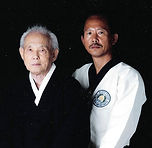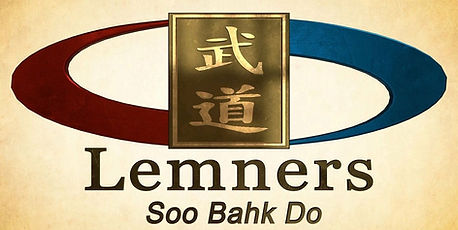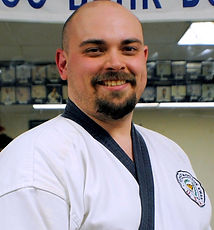
The Instructors Influence
- May 8, 2025
- 4 min read
The Lasting Influence of a Soo Bahk Do Instructor on Their Students’ Lives
By Steven Lemner
For Soo Bahk Do instructors the objectives extend beyond the training floor. They understand the deep value of what they share and how it affects lives by their living example of their own personal journey. They share their experiences to help students learn and grow.
Soo Bahk Do is more than just a martial art—it’s a disciplined path to self-improvement, balance, and harmony. Rooted in centuries-old Korean traditions, this art emphasizes not only physical techniques but more importantly the development of character, spirit, and moral integrity. At the heart of every student’s journey stands the Soo Bahk Do instructor, whose role is both profound and transformative. Their influence shapes far more than technique—it touches every aspect of a student’s life. I wanted to share some insights from my years as an instructor and things I have learned and experienced on my journey in the art over these fifty years of training in the martial arts. It is a challenge,but so rewarding to see it passed onto others to experience.
Cultivating Moo Do Values:
Soo Bahk Do instructors are torchbearers of Moo Do Jaseh (the martial way of life), instilling core values such as the eight key concepts, ten article of faith and five Moo Do values, including loyalty, respect, courage, and humility. These virtues form the philosophical backbone of training and become guiding principles that students carry into their daily lives. Instructors model these values consistently, offering not just martial instruction but a moral compass.
Developing Discipline and Respect Through Tradition:
Soo Bahk Do is steeped in ritual and respect—from bowing to the dojang (training hall), to honoring one’s lineage and heritage. Instructors uphold these traditions, fostering a deep sense of discipline and reverence in their students. This structure creates habits that transfer into school, work, and relationships, reinforcing personal responsibility and self-control. They connect the lives of student both near and far to create lifelong relationships.
Empowering Students With Confidence and Identity:
The journey from white belt to Dan (black belt) in Soo Bahk Do is challenging, but it’s within that challenge that confidence is born. Instructors guide students through technical, physical, and internal growth, helping them discover their strengths and believe in their capabilities. As students gain proficiency, they develop a solid sense of identity and purpose—one that is rooted in achievement, integrity, and self-awareness.
Preserving and Transmitting Cultural Heritage:
Soo Bahk Do is not just a martial art—it is a living expression of Korean culture. Instructors serve as cultural ambassadors, teaching students the meaning of Korean terms, the history of Hwang Kee (the founder), and the importance of preserving tradition. This cultural education enhances appreciation, tolerance, and global awareness in students of all backgrounds. These lessons crossover to the student’s personal history and cultural background to instill pride and knowledge.
Promoting Holistic Health and Balance:
Soo Bahk Do integrates mind, body, and spirit, and instructors emphasize this holistic approach. Training strengthens the body through forms (hyung), sparring (dae ryun), and conditioning. Simultaneously, instructors encourage meditation, breathing exercises, and ethical behavior—helping students manage stress, regulate emotions, and pursue harmony within themselves and with others.
Providing Mentorship and Lifelong Guidance:
Many students come to see their Soo Bahk Do instructors as mentors or even extended family. Instructors often offer encouragement through difficult life events, personal challenges, or emotional struggles. Their steady presence and guidance become a source of stability, especially for younger students seeking direction and support.
Teaching Perseverance:
The rigorous path of Soo Bahk Do requires dedication, humility, and consistent effort. Whether training for a belt test, preparing for a demonstration, or refining a hyung, instructors teach the importance of hard work over shortcuts. Students learn to embrace the process and develop lifelong resilience—an invaluable skill in any endeavor.
Fostering Leadership and Service:
Advanced students are encouraged to assist lower-ranking practitioners, lead warm-ups, and even become certified instructors themselves. Through this, instructors pass on leadership skills rooted in service, not ego. They nurture future generations of Moo Duk Kwan members who lead with integrity, empathy, and humility—mirroring the philosophy of founder Hwang Kee.
Empowering Responsible Self-Defense:
Instructors teach students that Soo Bahk Do is a defensive art and that strength must always be balanced with wisdom. Students are empowered to protect themselves and others—not through aggression, but through calm, measured, and respectful responses. This understanding of peaceful conflict resolution becomes a cornerstone of their worldview.
A Soo Bahk Do instructor is more than a martial arts teacher—they are a mentor, a philosopher, a cultural steward, and a moral guide. Through every bow, hyung, and sparring match, they help students uncover their best selves. The lessons learned in the dojang echo throughout a student’s life, shaping who they become as martial artists, leaders, and human beings.
In Soo Bahk Do, the instructor doesn’t just teach martial arts—they cultivate a Moo Do In (one that lives the art in action.





























Comments